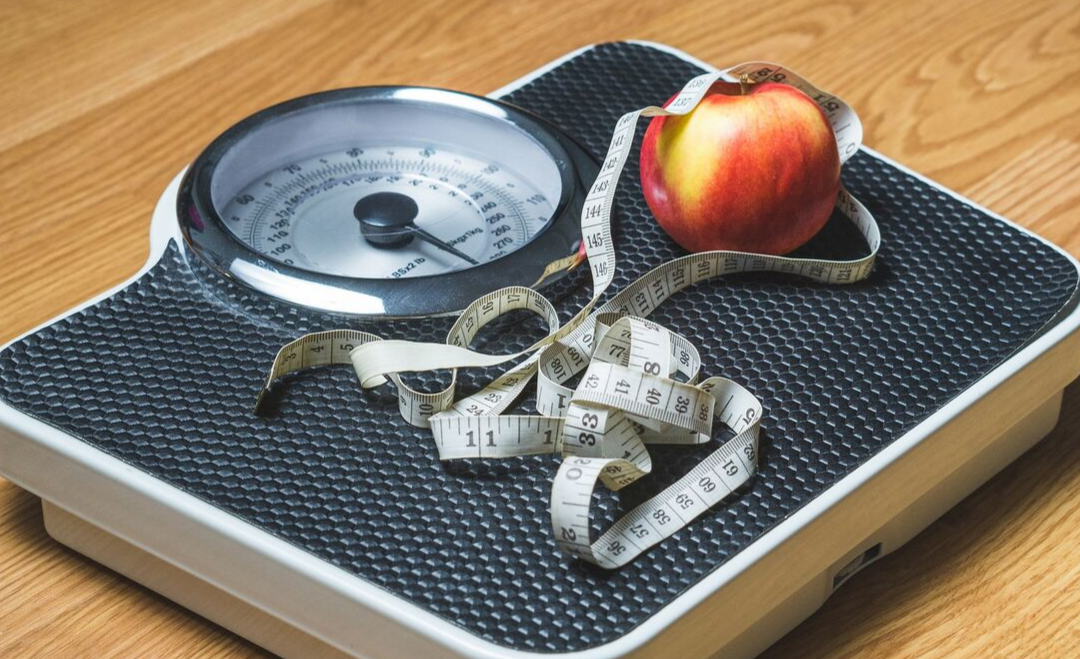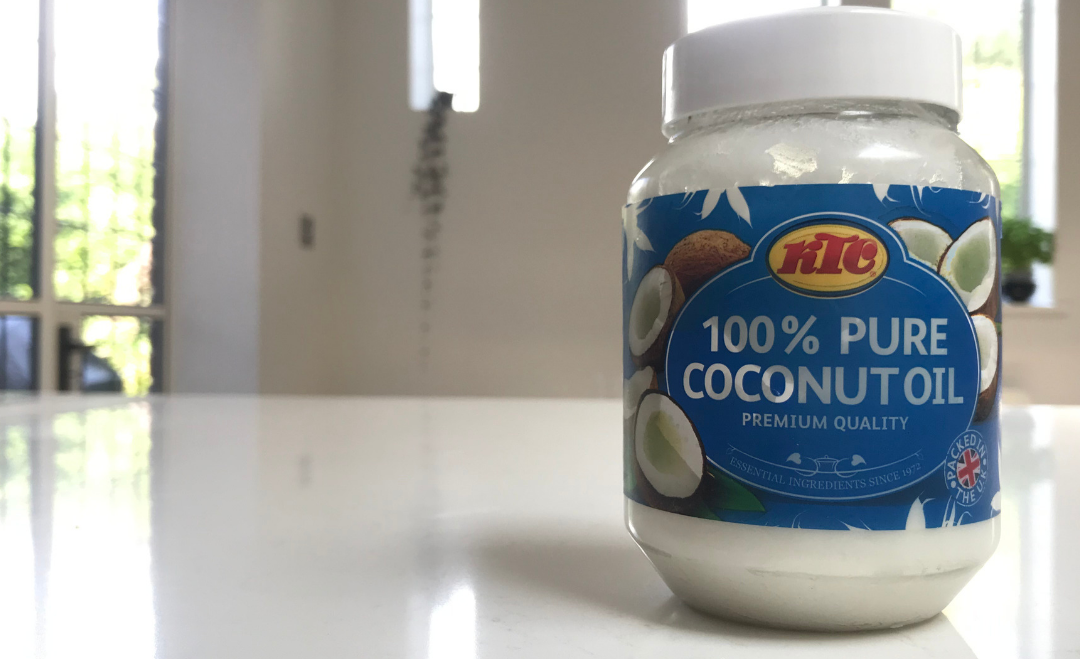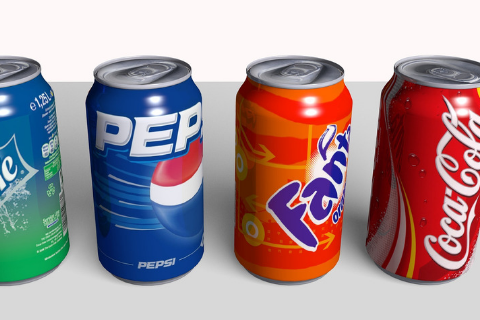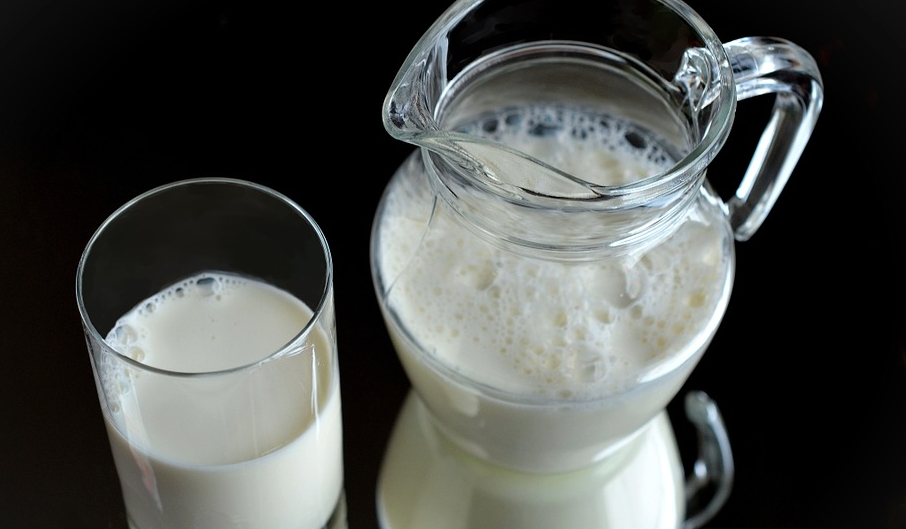
by Nutrilicious | Dec 17, 2019 | Hot Topics in nutrition, Thoughts
The Game Changers is causing a stir. The documentary by Academy Award-winning filmmaker Louie Psihoyos and James Cameron investigates plant-based eating, and features the likes of Arnold Schwarzenegger, Jackie Chan, Lewis Hamilton and Novak Djokovic.
If you haven’t seen it yet, it’s streaming on Netflix now and is essential viewing. Meat and dairy are painted as deadly, with vegan diets the only solution for optimal physical and environmental health. It presents the latest nutrition, health and environmental science in an enticing and motivational way – be it in an all or nothing manner.
So does the film put the final nail in the coffin for the meat and dairy industry?
Even if you are a sceptic about vegan diets and their nutritional quality, The Game Changers cannot be criticised for the scientific credibility of the health benefits of plant-based eating presented.
Some key myths debunked by The Game Changers:
- The label ‘complete protein’ attributed to meat is dated…why do both consumers and many health professionals hold onto this belief? The truth is:
- All plants contain all essential amino acids, be it some at lower levels than meat protein.
- Food combining at mealtimes is not needed. Protein balance is achieved over the course of the day and not dependent on the protein consumed in one sitting.
- As long as individuals meet their energy requirements, a diet based purely on plant foods will achieve protein balance.
- Vegans, like omnivores, exceed their protein requirements.
The Game Changers illustrates this point brilliantly by using elite power and endurance athletes following a vegan diet, whose performance has clearly not been compromised.
- The film demasculinises meat by showing high-profile elite male strength and endurance athletes excelling on a plant-based diet.
- Iron and vitamin B12 deficiency is not a consequence of meat and dairy avoidance but a result of our current poor quality dietary and farming practices.
- Epidemiological studies have consistently demonstrated better health outcomes in individuals following more plant-based diets: heart health, cancer, diabetes, body weight.
- Soya does not feminise men, nor does it reduce testosterone levels. This has been a long-held misconception based on theoretical risk and animal studies using pure isoflavones or exceptionally high loads of soya feed. All human studies using soya foods and drinks have consistently demonstrated no risk to human health and in many cases improved health outcomes.
- And of course, sustainability. The leading scientists from the EAT forum, including Dr Rockstrom, Dr Tim Lang and Prof Walter Willet discuss the overwhelming evidence that animal farming is the leading cause of deforestation, biodiversity loss, water and soil pollution, carbon emissions and the biggest user of fresh water and land.
This is not new scientific thinking. The key facts from The Game Changers have been repeatedly demonstrated by the scientific literature from randomised controlled or epidemiological studies, meta-analyses and systematic reviews. At Nutrilicious, we’ve been championing sustainable plant-based eating amongst health professionals, organisations and brands as a core mission since our foundation.
We’re thrilled to see this reach the mass consumer. The Game Changers have presented the science in such a refreshing, convincing and inspirational way which will have significant influence on consumer perceptions and acceptance of plant-based eating – something the scientific community has been struggling to achieve despite the plethora of scientific research published.each the mass consumer.
What about the criticisms that have ensued since its release?
There will always be criticism when a seemingly radical change to day-to-day food systems is proposed, especially when one of the biggest food industries is the target – meat and dairy. Most of the critics of The Game Changers have unfortunately fallen in the common trap of using dated and poorly designed scientific studies for their counterarguments.
Some have commented that The Game Changers only reports on elite athletes and the benefits of plant-based diets cannot be extrapolated to every-day consumers.
The film’s key aim is to remove the long-held belief that removing meat and dairy from the diet will compromise protein quality and quantity, and be unable to meet other essential nutritional needs. If elite athletes’ performance can excel by switching to a vegan diet for many years, we have proof that the nutritional quality of the diet is not compromised – even in individuals with exceptionally high-quality nutritional demands.
What about other athletic performance factors such as sleep, recovery, training programme etc., not discussed by the documentary?
Firstly, The Game Changers does not set out to claim that if all consumers followed a vegan diet they can become elite athletes. Secondly, the athletes in the documentary have always followed a highly-regimented training programme and have only altered one factor – their diet, with a switch to veganism. This is an excellent group of individuals to demonstrate how changing one factor in their regimented programme does not compromise performance.
However, what The Game Changers does fail to do is bring a practical, balanced approach to how the public can change their dietary habits.
- As Arnold Schwarzenegger comments near the end of the documentary (we too are shocked that we are quoting Arnie!), telling individuals that they have to stop eating meat isn’t going to bring about change. We need to bring the public on board, gradually advising on small realistic achievable goals.
- The film lacks any practical advice on how someone can progress to a more plant-based diet in a balanced and healthy way. Advising consumers to drop key food groups is not the solution. The public needs to be guided on which foods to consume and in the right quantities.
We need to bring to life what the scientific evidence demonstrates to be a healthy ‘plant-based’ diet i.e. more fruit and vegetables, wholegrains, beans, pulses, seeds and nuts. The foods and meals served on the documentary are, in the main, highly-processed plant imitations of meat and dairy, and salads were drenched in high calorie ‘vegan’ dressings. This has to be a big watch out for retailers and food manufacturers developing and launching new plant-based foods.
Additionally, portions sizes are extremely ‘American’ (aka large), which will do little to thwart our obesity epidemic. While that may be fine for elite athletes who burn it off, it’s not so good for the average person.
- It neglects to acknowledge that most national dietary guidelines globally do focus on a more plant-based healthy and environmentally sustainable diet.
- ‘Vegan’ in itself is not the answer – someone consuming processed carbohydrates, fried and highly processed vegan foods, vegan chocolates and biscuits will do little to improve physical or environmental health.
- Finally, The Game Changers doesn’t tackle behaviour change and the importance of changing the food environment consumers live in. As the latest evidence clearly demonstrates, individual responsibility will have little, if any, impact on public health outcomes. A significantly bigger role needs to be played by all food providers.
Would we have done it differently?
In the main, this is an exceptional documentary presenting the latest scientific thinking and debunking the myths associated with plant-based diets in such a consumer inspiring and appealing way.
We need to shift consumers to a more plant-based dietary pattern – though not necessarily vegan, which is neither realistic or practical for the masses. Removing misconceptions and popularising a diet predominantly based on plant foods with just a garnish of meat and dairy is a win-win for both human and environmental health.
Our Nutrilicious tweaks would be:
- Provide more practical, how-to solutions focusing on which foods you can have, rather than which foods to avoid. Step-by-step guide to gradually including more plant foods whilst reducing animal foods.
- Rather than meat and dairy imitations, bring the focus on the versatility of natural plants such as beans, pulses, wholegrains, nuts, seeds and fruit and vegetables.
- Focus more on the food providers and marketeers and the drastic changes they need to make.
- As always in winning comms…lead with the creative ‘inspirational’ yet credible marketing spin!
Check out our related webinars:
NutriWebinar: Plant Food Source of Protein
NutriWebinar: Sustainable Diets 1 – BDA One Blue Dot
NutriWebinar: Sustainable Diets 2 – EAT Lancet
#TheGameChangers

by Nutrilicious | Sep 20, 2019 | Thoughts, The Nation’s Health, Education
When it comes to food choices, what should we be advising those suffering from type 2 diabetes to help them manage weight and glucose?
Do we focus on a low carb diet?
Cutting out fat?
Or just the simple principle of sticking to Eatwell guidelines?
Media headlines continue to offer 101 different – conflicting – solutions. So what’s the truth? How can we piece together this apparent mess to best support those with diabetes?
Next week, in the second in our series of diabetes NutriWebinars, expert Dr Duane Mellor, RD, Senior Teaching Fellow at Aston Medical School, Aston University will be exploring these topics.
Looking at how advice has shifted over the past few decades, he’ll be talking through the latest evidence and explaining what health professionals can do to actually help people living with type 2 diabetes.
The webinar will also cover evidence from the last couple of years that shows that type 2 diabetes is not necessarily always a condition for life: through weight loss and maintenance, we can actually help people go into remission.
Fundamentally, it’s about putting the person with the condition at the centre – rather than trying to force them into eating habits that don’t suit their lifestyle, culture or preferences. Instead of concentrating on specific nutrients at specific times of the day – ‘you must have starchy carbs at breakfast’ – it’s working out what works for them, at the same time as creating an overall balanced diet.
Inviting questions and ideas from participants, the NutriWebinar is set to be an interesting, informative and empowering evening. (Plus, it’s free and counts as CPD.) We hope you’ll join us and encourage colleagues to join in too: register now

by Nutrilicious | Aug 19, 2019 | Hot Topics in nutrition, Surveys and insights, Changing mindset
At long last, the Scientific Advisory Committee on Nutrition (SACN) report on saturated fats and health was published this month. The conclusion? Nothing new: saturated fat leads to heart disease and we should limit it to 10% of our calorie intake. So will it finally put an end to the irresponsible advice that abounds suggesting saturated fat isn’t so bad for you?
It’s taken over a year from the draft report to final version because of the number of comments, criticisms and questions as to why certain studies were or weren’t included as part of the overall evidence into sat fats.
The SACN committee has investigated and answered each one, including only the highest quality evidence available. The studies that came to the wrong conclusions about saturated fat were shown to be flawed.
They’re open about certain limitations to the evidence: for example, whether replacing saturated fat intake with carbohydrate can be beneficial. None of the studies look specifically at ‘good’ carbs (for example wholegrain cereals), just at carbs overall. Further research still needs to be done into this.
But the overall conclusion was inescapable: to reduce cardiovascular disease we should lower our intake of saturated fat.
So will high profile influencers like Dr Michael Mosley or Joe Wicks take note and stop promoting ingredients like coconut oil, which is shown to have higher saturated fat than butter and lard?
Sadly, we think it’s unlikely. For one reason or another they seem to have too much invested in it.
But if you’re reading this and feel as strongly as we do about the need to stop the irresponsible advice, join us in canvassing the influencers to open their eyes to the dangers of what they’re suggesting – rather than just thinking about their commercial interests or looking for the next great headline. #saynotosatfat
Go to the British Nutrition Foundation website for a summary of the SACN report findings

by Nutrilicious | Jun 14, 2019 | The Nation’s Health
‘The levy is working.’ That’s the conclusion from a recent survey of drinks sales, a year on since the Soft Drinks Industry Levy (SDIL) – or sugar tax – was introduced.
The study concentrated on products that sell in large enough volume to have a public health effect. In a ‘historic change’, sales of Coke Zero Sugar increased by 50 per cent and Pepsi, sugar-free Max by 17 per cent. Full sugar Classic Coke and Blue Pepsi sales both fell.
The shift is attributed to the sugar free drinks being cheaper than their full sugar equivalent, as a result of the SDIL. Giving consumers the economic incentive to buy drinks that are healthier has worked. As the authors of the study say, ‘Discounts have had the effect that economists expected and health specialists hoped for.’
New sugar free versions of popular drinks are being increasingly sold in major retailers, with the hope that they’ll also become more prominent in smaller, independent shops. The positive trend is moving in the right direction – and it’s happening relatively quickly.
More needs to be done from a retail environment point of view, especially alerting customers to the discounts. Non-lead brands do still have work to do on reducing their sugar levels – although affecting a far smaller number of individuals, they still impact on health. And of course, the drinks industry is just one part of the wider obesity story.
We wondered what the effect of the sugar tax would be when it was introduced. So it’s fantastic to hear the dramatic change that’s already happened – and we’ll be monitoring the year ahead with interest.
The study was carried out by Jack Winkler, Emeritus Professor of Nutrition Policy, London Metropolitan University and Tam Fry, chair National Obesity Forum. Go to BeverageDaily.com to read the full results

by Nutrilicious | Jun 3, 2019 | Hot Topics in nutrition
According to headlines, iodine deficiency is the latest threat to our health in the UK. What’s more, the media says, poor iodine status is due to the rise of veganism and our increasing love for plant-based drinks as milk alternatives.
The headlines focused on the fact that dairy milk is our main source of dietary iodine, whilst plant-based drinks (with a few exceptions) do not contain iodine.
But is lack of iodine an issue? Could an increased consumption of plant-based drinks put people at risk of iodine deficiency?
It’s a complicated issue, but let’s look at the facts…
Is iodine important in the diet?
Yes. Iodine is essential. The body needs iodine to make thyroid hormones, which is fundamental for foetal and young children’s growth and brain development. Severe iodine deficiency in pregnant women can cause irreversible brain damage in their offspring. Population studies have also demonstrated a lower IQ score of around 13 points in severe iodine-deficient populations compared to iodine replete populations. The World Health Organisation (WHO) has stated that low iodine status is the single most preventable cause of brain damage in the world.
Adequate iodine status is especially critical for women of child-bearing age, during pregnancy and whilst breast feeding, to ensure optimal brain development in the foetus and young infant. Continued optimum intake in childhood and adolescence is fundamental as the brain continues to develop. It is important to note that folate, iron and long-chain omega-3 fats are also critical to brain development.
Severe iodine deficiency is rare in developed countries like the UK. However, there are significant numbers of women, especially of child-bearing age who are mild to moderately iodine deficient. A number of recent meta-analysis (including findings from UK population groups) indicate a high probability of compromised cognitive development in children whose mothers had mild to moderate iodine status during pregnancy. How significant these lower IQ scores are to cognitive ability in adulthood has yet to be established.
Measuring iodine status of a population
Median urinary iodine concentrations (UIC) are the best way to assess the iodine status of a population or large group. This is because the iodine content of foods is too variable to rely on dietary intakes as a measure of iodine status.
How the WHO classifies iodine deficiency.
| For a healthy population 6 years and older |
For pregnant and breast feeding women |
| Median UIC is below 100mg/L AND
If 20% or more of that population has a median UIC of less than 50mcg/L. |
Median UIC below 150mcg/L |
| Mild deficiency |
50-99 mcg/L |
| Moderate deficiency |
20-49 mcg/L |
| Severe deficiency |
<20 mcg/L |
Does the UK have an iodine deficiency problem?
According to the latest National Diet and Nutrition Survey (NDNS) using WHO criteria, from an overall population perspective we’re actually not doing badly, with all age groups and sexes showing adequate iodine status.
However, severe to moderate deficiency (UIC <50mcg/L) still afflicts a significant number of our population:
• Approximately 1 in 10 children aged 4-18 years
• 14% of adults 19-64 years
Unfortunately, the NDNS does not currently perform UIC measures in pregnant women or the under 3s, the most susceptible population groups to low iodine status.
Women of child-bearing age (16-49 years) are classified as iodine replete, with a median UIC of 102mcg/L.
However, almost 70% of them would be classified as mildly to moderately iodine deficient if they were to become pregnant – i.e. UIC levels below 150mcg/L – when taking account for the increased demands of the foetus and young infant.
As a result, many are calling for the government to review the UK’s iodine initiatives, especially for women who are planning/are pregnant, or are breast feeding.
How does what we eat impact on our iodine levels?
The ocean is nature’s source of iodine, thus fish, seaweed and algae are rich sources. Additionally, coastal soil regions will acquire some iodine from coastal waters.
Therefore, higher intakes of seafood are paramount for adequate iodine status and studies have found seafood intakes to be positively correlated with iodine status.
In the UK, fish intakes are exceptionally poor. Few meet the government’s recommendation of two 140g servings per week. Average total fish weekly intakes in the UK:
• The majority of 4-18 year olds consume no more than 56g.
• The majority of adult women (19-64 years) consume 84g fish.
• The majority of adult men (19-64 years) consumer nearly 100g fish.
Iodine and dairy milk
In the UK, farming practices were changed in the 1930s to eradicate the high incidence of iodine deficiency. Animal feeds were fortified with iodine and the use of sterilizers containing iodine were introduced. This resulted in a significant increase in iodine levels of dairy milk and a consequent eradication of severe iodine deficiency.
Winter milk is significantly higher in iodine compared to summer milk, as dairy cattle are more likely to reared indoors with fortified feed in the winter months.
Thus the key source of iodine in the UK is indeed dairy milk – contributing to 34-40% iodine intakes in adults and 40-51% iodine intakes in 4-18 year olds.
Could plant-based drinks place the nation at risk of Iodine deficiency?
It is true that the majority of plant-based drinks do not contain iodine. However:
1. Incidence of mild to moderate iodine deficiency in pregnant women has actually been high in the UK since the 1990s, when milk intake was at its highest.
2. Despite the recent popularity of plant-based drinks, dairy milk intakes have seen little reduction. And plant-based drinks consumers also continue to drink dairy.
Since 2010, milk intakes have reduced by just 74mls per person per day (a 6.5% decrease), while plant-based drinks – although on a sharp incline – equate to just 45ml per person per day.
Therefore, plant-based drinks – whether they are or not fortified with iodine – are not the cause of the iodine deficiency that has been present for many decades.
Other considerations
• Cognition is affected by multiple environmental, psychological as well as dietary components e.g. pollutants, home environment, education level, various nutrients including vitamin D, iron, folate and iodine.
• Iodine is not highlighted in advice provided to expectant mothers, nor is it on the government agenda.
• No studies have indicated vegan populations, who exclude all dairy, to have lower IQ levels compared to omnivores.
There are also effective initiatives that have helped to eradicate severe iodine deficiency
• The WHO Iodized Salt programme has been adopted in many countries and proven to be successful.
• Iodine supplements have shown to be effective when given to women in the first or second trimester of pregnancy.
Takeaway messages
1. Many factors are at play when considering brain development of the foetus and young infant:
– Adequate intake of a number of nutrients, including iodine but also iron and folate
– Optimal environmental and psychological settings.
‘Fixing’ one aspect or one nutrient is not the answer to helping optimise cognition in the UK.
Saying this, iodine is one of the essential nutrients for brain development. That has been overlooked and needs to be addressed by the government, on a similar level to iron, folate and vitamin D – especially for expectant women and breast-feeding mothers. Monitoring iodine status needs to be instigated by the government for these groups and young children.
2. The increase in plant-based drinks’ popularity is not the cause of the sub-optimal iodine status in the UK, which has been prevalent in pregnant women for decades – way before plant-based drinks became mainstream.
Rather, the poor dietary patterns of the UK population need to be addressed, especially with regard to our less than optimal fish intake – the richest source of iodine.
Whenever we see the media headlines expounding the ‘benefits’ or ‘dangers’ of individual nutrients or foods, we worry. After 20 plus years in public health nutrition and communications, we believe there is a responsibility and an urgent need for all involved in this field to move away from doing this. In the majority of cases it’s not helpful and is more often scaremongering.
a. We need communications to focus on a balanced food intake. Focusing on a single nutrients in the media is dangerous and ignores all the bigger questions that need addressing: especially obesity and its many associated diseases and “how to” best help the nation enjoy a healthy balanced food intake for optimum health.
b. We need food and health communications that are not only healthy but also sustainable for our planet. Current scientific evidence repeatedly highlights the impact that our food choices have on the environment because of their significant contribution to greenhouse gas emissions, deforestation, biodiversity loss, and destruction of the ecosystem, use of fresh water and polluting of soil.
Beef and dairy cattle farming have been highlighted as the major dietary contributors, whereas plant-based drinks have been shown to be significantly more sustainable.
Leading experts have concurred that a balanced diet that is based predominantly on plant foods – including plant-based drinks – with lower intakes of meat and dairy, without having to exclude them altogether, is both sustainable and nutritious. Read our Sustainable Diets blog for more information.
It is incumbent upon all food and health influencers to incorporate these messages into all relevant food and health communications. Unfortunately, this is not yet being considered widely.
Sources:
1. Chambers L. Are plant-based milk alternatives putting people at risk of low iodine intake? Nutr Bulletin 2018;43:46-52
2. PHE. Results of the National Diet and Nutrition Survey (NDNS) rolling programme for 2014 to 2015 and 2015 to 2016. 2018 [cited 5/11/2018]
3. WHO-UNICEF. Assessment of iodine deficiency disorders and monitoring their elimination. Third Edition. 2008 [cited 9/25/2018]
4. Bath S, Rayman M. A review of the iodine status of UK pregnant women and its implications for the offspring. Environ Geochem Health 2015;37(4):619-29.
5. Levie D, Korevaar TIM, Bath SC et al. Association of maternal iodine status with child IQ: a meta-analysis of individual-participant data. J Clin Endocrinol Metab. 2019 Mar 28. [Epub ahead of print]
6. Dineva M, Rayman MP, Levie D et al. Similarities and differences of dietary and other determinants of iodine status in pregnant women from three European birth cohorts. Eur J Nutr. 2019 Feb 8. [Epub ahead of print]

by Tanya HAFFNER | May 15, 2019 | Retail, Hot Topics in nutrition, Thoughts
My first SMART SHOP 🛒 ever!
A taste of the future of grocery shopping! 🍏 🍊 🥛
Have you experienced it yet? If so how was it? This is my short story….May 2019!
“I can do this”…I told myself as I hear my forever forward thinking colleague Howard @see_research tell me that @Sainsburys @SainsburysNews have a new smart shop in Holborn – must be tried!
Forget ones inbuilt fear about new tasks I tell myself, especially new tech tasks….which is always a slow learn for me, where I normally have to do things 2-3 times before it clicks! Instead, need to muster all life skills accumulated over many years to overcome said fear, gain new experience, stay ahead & be more informed about retail advances!
Swapping 👠 for 👟 after our meeting I bounce over to the new store with curiosity & best enthusiasm possible for joining in…thankfully greeted by helpful friendly young millennial providing immediate, necessary, app set up assistance & source of calm!
After 10 mins setting up the store app on my 📱 (not as easy as I had hoped with millennial help but thankfully unlike the much slower paced android next to me 😢 ) I was finally ready to go & shop like I never shopped before & looking forward to experiencing no checkout & a speedy exit!
I watched & copied those before me! I test scanned an 🍏 . I scanned the bar code on the apple shelf, then picked up the apple & placed it in my bag. Easy! “Whoopee” I say when camera scans it immediately. I briefly remind myself of a talk at my sons school the week before which inspired me to embrace tech +++ + as our near future is artificial intelligence in every which way possible. Suddenly feeling more positive about my chances with that! What fun! 😀
Onto the next shelf I tried to scan the bar code on the shelf in front of a pack of mixed fresh beans. Error appears! 😆Oh dear. You have to fail before you really succeed, right?! I discover that for packaged goods you have to scan the bar code on the pack – not the shelf! A little awkward & challenging when holding the product & my shopping bag & in need of at least one whole hand to take the scan on the iPhone & another hand to hold the product. But must not be defeated!
I scan two more items successfully. I then suddenly think about my next meeting & the need to run. I smugly look at the long queue in front of me & start to proceed to check out & pay on the spot on my app & search for the QR code on the shop wall to indicate Im done & leaving. Only snag….my apple pay linked to the app doesn’t accept @Barclays @BarclaysUK debit cards yet ,which explains the difficulties that even my helpful millennial did not realise at set up!
A bit frustrating having to leave & not complete the new task- but having no time for the store queue the store manger kindly takes my items back.
I did however leave thankful to @Sainsburys overall for the new shopping experience. It was of course a faff to set up the app even for the millennial assisting me and it obviously has a teething problem with some banking cards. However, once set up & you know where to scan I can only imagine it becoming second nature to us all very quickly.
On the negative side I can see us having no human contact as we go out to shop which adds to my concerns about the deterioration in social skills as tech inevitably increases in our lives. A big responsibility for the big tech corporations & us all to address, I think.
On the positive side I can visualise all kinds of new nutrition tech supporting this app that may analyse our shop as we scan, potentially feedback to us as we shop & help nudge us towards healthier & more sustainable shopping baskets! How amazing would that be!
Watch this space… I have no doubt! If you have experienced smart shop or have any further thoughts Id love to hear! In the meantime happy 😃 healthy shopping everyone however you choose to do it right now! 🛒






